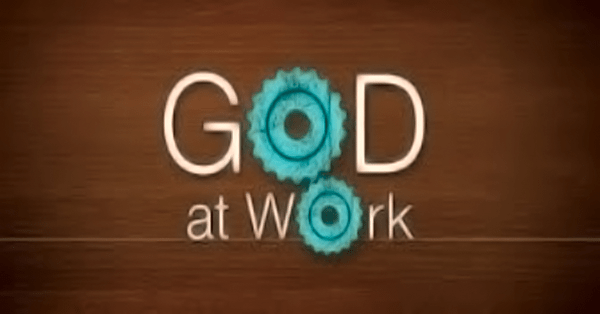
Martin Luther on Vocation with Michael Horton
On today’s episode of 5 Minutes in Church History, Drs. Stephen Nichols and Michael Horton discuss Martin Luther’s recovery of the doctrine of vocation.
Stephen Nichols (SN): Recently we had our good friend Dr. Michael Horton here. I had left him on a deserted island. He’s tanned, rested, and he’s back, and we have him again. Dr. Horton, good to have you back.
Michael Horton (MH): Thank you, Steve. Great to be back.
SN: Did you enjoy your time?
MH: It was restful. Amazingly restful for five minutes.
SN: Well, I’m going to put you back to work for another five minutes. You recently joined us at the Ligonier National Conference, which, of course, focused on the Reformation, and you spoke on the doctrine of vocation. Now, when we think of Martin Luther, we think of thesolas, we think of the authority of Scripture, we think of the necessity of justification by faith alone through grace alone in Christ alone. But one of the crucial doctrines of Luther is vocation. Could you expand on that a little for us?

MH: You know, a lot of people think of justification as the material principle of the Reformation, with Scripture alone as the formal principle, but one historian has said, actually, that in terms of the greatest impact on the culture, it was the doctrine of vocation that made the biggest difference long term. And you can sort of see why because people who aren’t Christians, who aren’t going to church, who aren’t hearing the gospel proclaimed week after week, have still been touched by Christians who are. And there were so many Christians who were revolutionized by the gospel that it changed their whole outlook on Monday morning. Were they just happier because they understood they were justified by grace alone through faith alone in Christ alone? That’s part of it. But there was more to it. They had categories for thinking about Monday through Friday. They weren’t just working for the weekend. They had a transcendent view of things. R.C. Sproul has been saying for years, “Right now counts forever,” and they had a real sense of that. Even when a milkmaid is milking a cow, Luther said, she is glorifying God just as much as a preacher in a pulpit preaching a sermon.
SN: So, this is one of the things Luther helped us with. He recovered the word vocation, which, by the time of Luther, really was applied only to the priests.
MH: Ordained ministry, yeah.
SN: To the monks, the nuns, who had given their life to the church. Everyone else was just putting in time. So, Luther comes along and calls these ordinary roles—fathers or sons or daughters or wives—a calling, and our work is a calling.
MH: You sometimes hear in Christian circles that someone received a call. But really, everyone is called. Even non-Christians. That is another revolutionary thing about it. The Reformers believed that Scripture taught that everyone is called. Even people who don’t believe in God receive a calling because they are created in the image of God, and in His common grace God actually causes non-Christians to serve Christians even. You don’t have to buy Christian milk . . .
SN: From a Christian cow . . .
MH: From a Christian cow with “John 3:16” on the cup. Our vocation is one of those things that we share with everyone around us. When I am loving and serving my neighbors, when I am changing diapers, when I’m cleaning the car, all of these things are callings. And we don’t have just one; we have a bunch of callings, Luther said. And it really makes a big difference. And the gospel wasn’t just, “Let’s all go to work with a greater sense of the grandeur of what we are doing,” but really a sense of, “You have no one to pacify anymore.” Everyone was so anxious and spent all their energy, if they cared about it at all, on climbing their way to heaven. Well, we don’t have to. God has climbed down to us. Now what do we do? We love and serve Him by loving and serving our neighbors. And I love Luther’s line: “God doesn’t need our good works; our neighbors do.” God doesn’t need them, we don’t need them, but our neighbors do.
SN: Thank you, Dr. Horton, and thank you for reminding us of another piece of the great legacy of the Reformation—vocation.
MH: Thank you, Dr. Nichols. Great to be with you.
Stay connected with 5 Minutes in Church History by getting the weekly podcast on iTunes, SoundCloud, or via RSS. You can also subscribe to the blog via RSS and follow us on Twitter and Facebook.
(This podcast is by Ligonier Ministries. Discovered by Christian Podcast Central and our community — copyright is owned by the publisher, not Christian Podcast Central, and audio is streamed directly from their servers.)